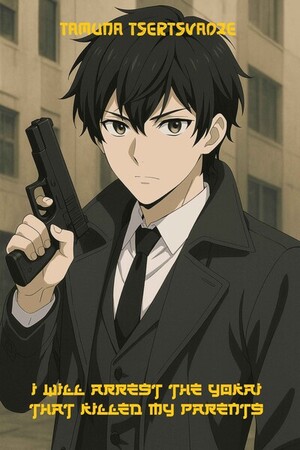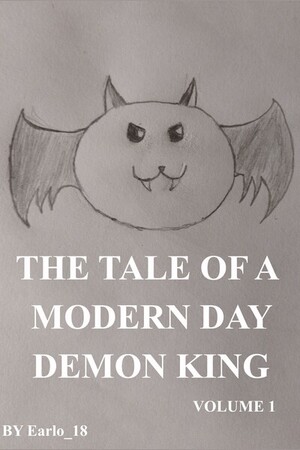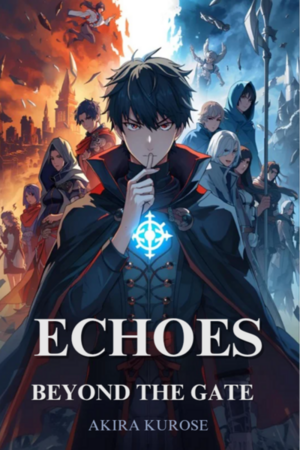Chapter 1:
Prologue
The Light That Lived
Chi Chi’s laughter rang through the air, bright and full of life, as she ran through the schoolyard with her friends. The afternoon sun cast a golden glow over the playground, and the world felt warm, safe, almost perfect. Her small feet barely touched the ground as she chased Jason, her giggles mixing with the chatter of other students.
“Catch me if you can!” Jason taunted, his grin wide as he dodged her grasp.
Chi Chi pouted before quickening her pace, determination lighting up her eyes. The other children cheered, their joy uncontainable as the game of tag continued. It was one of those moments that felt infinite, as if nothing could ever shatter the happiness they shared.
And yet, deep in Chi Chi’s heart, she knew better.
Because the moment the bell rang, signaling the end of the school day, the magic faded. A cold, invisible chain wrapped around her chest, dragging her back to reality.
Home.
She barely noticed as her friends waved goodbye, their voices distant echoes in her ears. The warmth in her smile dimmed, and her steps grew heavier. Her hands clenched around the straps of her tattered backpack, her knuckles white. She took the long way home, as she always did, savoring the last moments of freedom before stepping into the house where love did not exist.
The moment she opened the door, the air changed. The walls, though no different from any other house’s, felt suffocating. The dim lighting, the scent of old cigarette smoke, the sharp clatter of dishes in the sink—it all screamed of a place that never truly felt like home.
A voice, cold and sharp, cut through the silence. “You’re late.”
Chi Chi flinched. Her mother stood in the kitchen, arms crossed, lips curled in disdain. Her father barely spared her a glance from where he sat on the couch, bottle in hand, watching some mindless show on the television.
“I—I stayed back to help clean the classroom,” Chi Chi answered quickly, keeping her voice small.
A lie. But what did it matter? Truth never softened the blows.
Her mother scoffed. “Always an excuse.”
Before she could react, a hand struck her cheek. Not hard enough to leave a lasting mark—but enough to remind her of her place. The sting settled deep into her bones, though she was used to it by now. Used to the pain, the constant reminder that she was unwanted.
She lowered her head, blinking away the tears threatening to well in her eyes. “I’m sorry.”
“Don’t just stand there.” Her mother turned away, already dismissing her. “Start making dinner. And don’t you dare think about eating before we do.”
Chi Chi obeyed, her small hands working through the motions with practiced precision. The rhythm of chopping vegetables, stirring pots, washing plates—it was the only routine that kept her from breaking. By the time the meal was served, her parents had already forgotten she existed.
She was a shadow in her own home.
That night, as she lay curled up on the thin mattress in the corner of her room, she traced the bruises on her arms. She barely remembered when she had gotten them—yesterday? Last week? They all blurred together.
Her stomach ached, empty and hollow, but she had long since learned to ignore hunger. She exhaled softly, staring at the ceiling, counting the cracks in the plaster.
And then the real pain came.
A dull, creeping sickness curled in her gut, different from hunger, different from exhaustion. It had been there for months now, worsening with each passing day. She didn’t need a doctor to tell her something was wrong.
She was dying.
She had known for a while now, even if she hadn’t said it out loud. She saw it in the way her body grew weaker, how her hands trembled even when she wasn’t afraid. In how she struggled to breathe, how the world sometimes spun when she stood up too quickly.
And she knew why.
They had poisoned her.
Her parents, the very people who had given her life, were taking it away, bit by bit, day by day.
She could tell someone. She could tell Mrs. Johnson, who always looked at her with kind eyes, who had once whispered that she deserved better. She could tell Jason, who would probably cry and tell all the teachers. She could tell the school nurse, the police, anyone who might listen.
But she wouldn’t.
Because if she did, then she would have to admit it—to them, to herself—that she was dying. That her life was already slipping through her fingers like sand, no matter how tightly she tried to hold onto it.
She wouldn’t tell because deep down, a part of her still clung to hope.
Hope that maybe, if she just kept smiling, if she just kept pretending to be strong, she could make it. That she could outrun death, just like she had outrun Jason in the schoolyard today. That maybe, just maybe, she could rewrite the ending of her story.
So, she closed her eyes, curled into herself, and whispered a silent promise into the darkness.
Tomorrow, she would smile again. She would laugh, help, love—because if she could make even one person’s day brighter, maybe, just maybe, her existence would mean something.
Tomorrow, she would pretend again.
And tomorrow, she would keep running.
Even if it hurt.
Nothing could stop her.
Not the bruises. Not the hunger. Not even the poison laced into her meals by the very people who were supposed to love her.
She knew she was dying.
And yet, she wanted to smile anyway.




Please sign in to leave a comment.